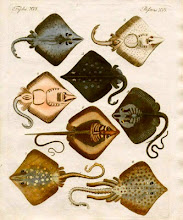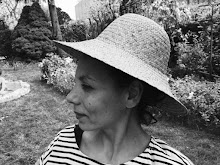by Tomasi Di Lampedusa
[extraxt]
May, 1860
Nunc et in hora mortis nostrae. Amen.
The daily recital of the Rosary was over. For half an hour the steady voice of the Prince had recalled the Glorious and the Sorrowful Mysteries; for half an hour other voices had interwoven a lilting hum from which, now and again, would chime some unlikely word: love, virginity, death; and during that hum the whole aspect of the rococo drawing room seemed to change; even the parrots spreading iridescent wings over the silken walls appeared abashed; even the Magdalen between the two windows looked a penitent and not just a handsome blonde lost in some dubious daydream, as she usually was.
Now, as the voices fell silent, everything dropped back into its usual order or disorder. Bendicò, the Great Dane, vexed at having been shut out, came barking through the door by which the servants had left. The women rose slowly to their feet, their oscillating skirts as they withdrew baring bit by bit the naked figures from mythology painted all over the milky depths of the tiles. Only an Andromeda remained covered by the soutane of Father Pirrone, still deep in extra prayer, and it was some time before she could sight the silvery Perseus swooping down to her aid and her kiss.
The divinities frescoed on the ceiling awoke. The troops of Tritons and Dryads, hurtling across from hill and sea amid clouds of cyclamen pink toward a transfigured Conca d’Oro,* and bent on glorifying the House of Salina, seemed suddenly so overwhelmed with exaltation as to discard the most elementary rules of perspective; meanwhile the major gods and goddesses, the Princes among gods, thunderous Jove and frowning Mars and languid Venus, had already preceded the mob of minor deities and were amiably supporting the blue armorial shield of the Leopard. They knew that for the next twenty-three and a half hours they would be lords of the villa once again. On the walls the monkeys went back to pulling faces at the cockatoos.
Beneath this Palermitan Olympus the mortals of the House of Salina were also dropping speedily from mystic spheres. The girls resettled the folds in their dresses, exchanged blue-eyed glances and snatches of schoolgirl slang; for over a month, ever since the “riots” of the Fourth of April, they had been home for safety’s sake from their convent, and regretting the canopied dormitories and collective coziness of the Holy Redeemer. The boys were already scuffling with each other for possession of a medal of San Francesco di Paola; the eldest, the heir, the young Duke Paolo, was longing to smoke and, afraid of doing so in his parents’ presence, was fondling the outside of his pocket in which lurked a braided-straw cigar case. His gaunt face was veiled in brooding melancholy it had been a bad day: Guiscard, his Irish sorrel, had seemed off form, and Fanny had apparently been unable (or unwilling) to send him her usual lilac-tinted billet-doux. Of what avail then, to him, was the Incarnation of his Savior?
Restless and domineering, the Princess dropped her rosary brusquely into her jet-fringed bag, while her fine crazy eyes glanced around at her slaves of children and her tyrant of a husband, over whom her diminutive body vainly yearned for loving dominion.
Meanwhile he himself, the Prince, had risen to his feet; the sudden movement of his huge frame made the floor tremble, and a glint of pride flashed in his light blue eyes at this fleeting confirmation of his lordship over both human beings and their works.
Now he was settling the huge scarlet missal on the chair which had been in front of him during his recitation of the Rosary, putting back the handkerchief on which he had been kneeling, and a touch of irritation clouded his brow as his eye fell on a tiny coffee stain which had had the presumption, since that morning, to fleck the vast white expanse of his waistcoat.
Not that he was fat; just very large and very strong; in houses inhabited by common mortals his head would touch the lowest rosette on the chandeliers; his fingers could twist a ducat coin as if it were mere paper; and there was constant coming and going between Villa Salina and a silversmith’s for the mending of forks and spoons which, in some fit of controlled rage at table, he had coiled into a hoop. But those fingers could also stroke and handle with the most exquisite delicacy, as his wife Maria Stella knew only too well; and up in his private observatory at the top of the house the gleaming screws, caps, and studs of the telescopes, lenses, and “comet-finders” would answer to his lightest touch.
The rays of the westering sun, still high on that May afternoon, lit up the Prince’s rosy skin and honey-colored hair; these betrayed the German origin of his mother, the Princess Carolina, whose haughtiness had frozen the easygoing Court of the Two Sicilies thirty years before. But in his blood also fermented other German strains particularly disturbing to a Sicilian aristocrat in the year 1860, however attractive his fair skin and hair amid all that olive and black: an authoritarian temperament, a certain rigidity in morals, and a propensity for abstract ideas; these, in the relaxing atmosphere of Palermo society, had changed respectively into capricious arrogance, recurring moral scruples, and contempt for his own relatives and friends, all of whom seemed to him mere driftwood in the languid meandering stream of Sicilian pragmatism.
In a family which for centuries had been incapable even of adding up their own expenditures and subtracting their own debts he was the first (and last) to have a genuine bent for mathematics; this he had applied to astronomy, and by his work gained a certain official recognition and a great deal of personal pleasure. In his mind, now, pride and mathematical analysis were so linked as to give him an illusion that the stars obeyed his calculations too (as, in fact, they seemed to be doing) and that the two small planets which he had discovered (“Salina” and “Speedy” he had called them, after his main estate and a shooting dog he had been particularly fond of) would spread the fame of his family through the empty spaces between Mars and Jupiter, thus transforming the frescoes in the villa from the adulatory to the prophetic.
Between the pride and intellectuality of his mother and the sensuality and irresponsibility of his father, poor Prince Fabrizio lived in perpetual discontent under his Jovelike frown, watching the ruin of his own class and his own inheritance without ever making, still less wanting to make, any move toward saving it.
That half hour between Rosary and dinner was one of the least irritating moments of his day, and for hours beforehand he would savor its rather uncertain calm.
With a wildly excited Bendicò bounding ahead of him he went down the short flight of steps into the garden. Enclosed between three walls and a side of the house, its seclusion gave it the air of a cemetery, accentuated by the parallel little mounds bounding the irrigation canals and looking like the graves of very tall, very thin giants. Plants were growing in thick disorder on the reddish clay; flowers sprouted in all directions, and the myrtle hedges seemed put there to prevent movement rather than guide it. At the end a statue of Flora speckled with yellow-black lichen exhibited her centuries-old charms with an air of resignation; on each side were benches holding quilted cushions, also of gray marble; and in a corner the gold of an acacia tree introduced a sudden note of gaiety. Every sod seemed to exude a yearning for beauty soon muted by languor.
But the garden, hemmed and almost squashed between these barriers, was exhaling scents that were cloying, fleshy, and slightly putrid, like the aromatic liquids distilled from the relics of certain saints; the carnations superimposed their pungence on the formal fragrance of roses and the oily emanations of magnolias drooping in corners; and somewhere beneath it all was a faint smell of mint mingling with a nursery whiff of acacia and the jammy one of myrtle; from a grove beyond the wall came an erotic waft of early orange blossom.
It was a garden for the blind: a constant offense to the eyes, a pleasure strong if somewhat crude to the nose. The Paul Neyron roses, whose cuttings he had himself bought in Paris, had degenerated; first stimulated and then enfeebled by the strong if languid pull of Sicilian earth, burned by apocalyptic Julys, they had changed into things like flesh-colored cabbages, obscene and distilling a dense, almost indecent, scent which no French horticulturist would have dared hope for. The Prince put one under his nose and seemed to be sniffing the thigh of a dancer from the Opera. Bendicò, to whom it was also proffered, drew back in disgust and hurried off in search of healthier sensations amid dead lizards and manure.
But the heavy scents of the garden brought on a gloomy train of thought for the Prince: “It smells all right here now; but a month ago . . .”
He remembered the nausea diffused throughout the entire villa by certain sweetish odors before their cause was traced: the corpse of a young soldier of the Fifth Regiment of Sharpshooters who had been wounded in the skirmish with the rebels at San Lorenzo and come up there to die, all alone, under a lemon tree. They had found him lying face downward in the thick clover, his face covered in blood and vomit, his nails dug into the soil, crawling with ants; a pile of purplish intestines had formed a puddle under his bandoleer. Russo, the agent, had discovered this object, turned it over, covered its face with his red kerchief, thrust the guts back into the gaping stomach with some twigs, and then covered the wound with the blue flaps of the cloak; spitting continuously with disgust, meanwhile, not right on, but very near the body. And all this with meticulous care. “Those swine stink even when they’re dead.” It had been the only epitaph to that derelict death.
*Conca d’Oro, literally “Golden Shell,” is the name of the hills encircling Palermo.




